Pine trees can grow up to 3 feet per year, so this is why you might want to use them as a border around your garden. But before you plant any tree, you need to make sure it’s the right one for your environment. With pine trees, in particular, one thing you might be wondering is, do they attract or repel mosquitoes?
Mosquitoes live and breed in shady, damp places, so they’re attracted to the environmental conditions found around pine trees, but not the trees themselves. Pine trees have dense branches which provide lots of shade, and they often have a thick layer of damp mulch around the base of the trunk.
You can still plant pine trees, but it takes some effort to manage the mosquitoes. If you want to know how to enjoy pine trees without suffering from mosquitoes, look at this vital information below.
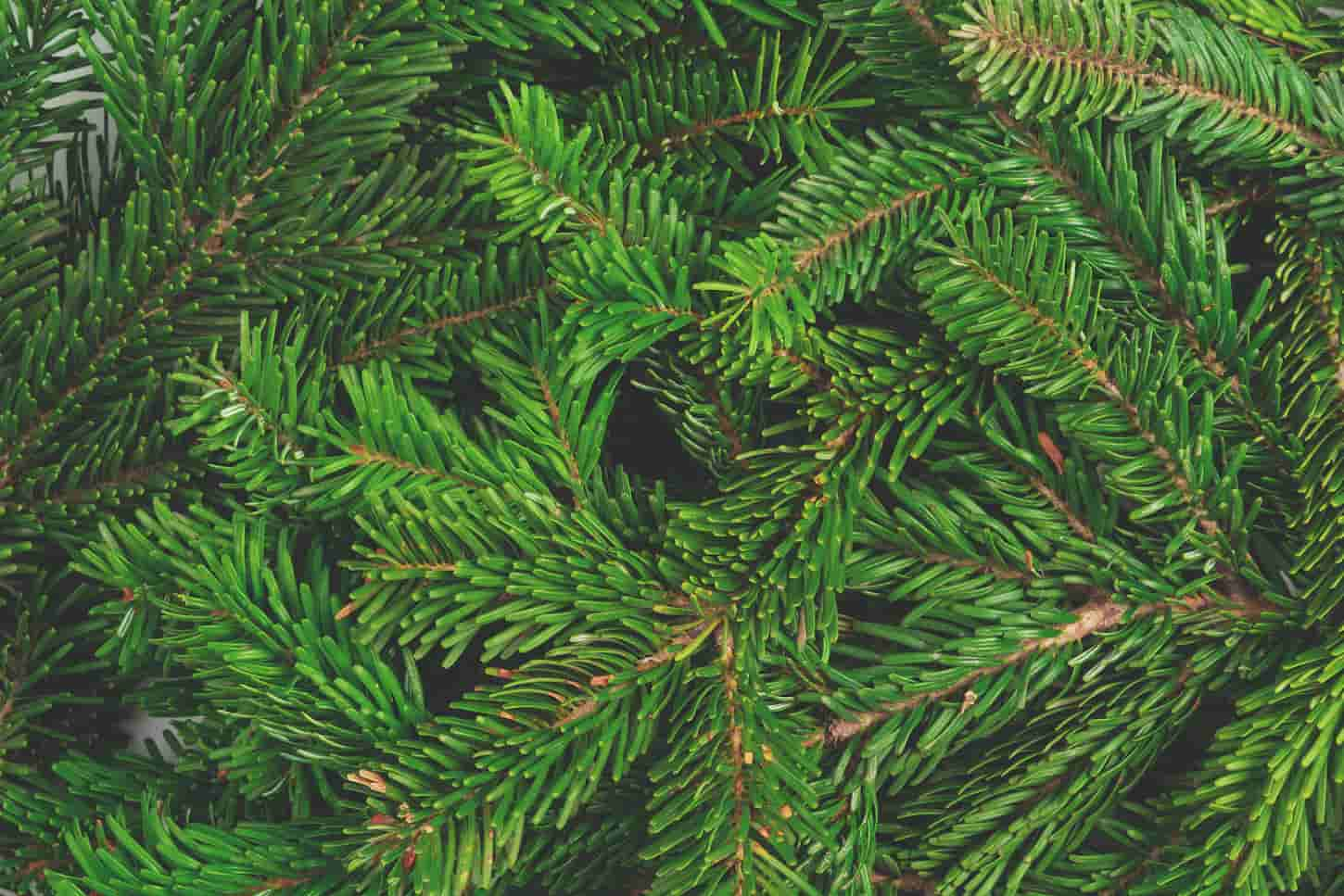
Quick Pine Tree Facts
There are over 125 different species of pine trees, and they grow predominantly in the Northern hemisphere. They prefer temperate, subtropical climates and grow well at high altitudes. Pines are evergreen trees which means they stay green all year round.
The leaves of a pine tree are needle-shaped, and they shed these once every two years. However, when they shed, the new needles have already grown, so this is why they stay green all year.
Pine trees are tall, they can grow between 10 to 260 feet tall, and they live a long time too. One of the oldest trees in the world is the Great Basin Bristlecone pine which is 5,000 years old. Some pine trees produce pine nuts, and these are a delicacy around the world.
Pine trees contain fragrant resin and pine essential oil. Pine oil has proven antimicrobial and insect repellent properties, and this is why you can find it in cleaning products, disinfectants, and insect repellents.
Is Pine a Natural Mosquito Repellent?
The pine tree, in its natural form, isn’t insect repellent. However, some of the chemical compounds inside the tree are powerful insect repellents. These compounds are extracted from the leaves and twigs through steam distillation to produce pine oil.
Some studies (like this one) show that pine oil is just as effective as citronella as a mosquito repellent. Pine oil is good against mosquitoes like An. culicifacies. This mosquito is responsible for up to 70 percent of malaria transmission in northern India.
Why Are Mosquitoes Attracted to Pine Trees?
Technically, mosquitoes aren’t attracted to the pine tree, they’re attracted to the shady, damp conditions that the tree creates. Therefore, you can make a pine tree less appealing to mosquitoes by regularly removing fallen needles and keeping the tree well pruned.
If you remove some branches from your pine tree, there will be less shade for mosquitoes. As well as this, more sunlight can penetrate the tree base and help keep the earth dry.
Fallen pine needles form a thick mulch under the tree. The mulch will retain moisture and attract mosquitoes. Hence, you should remove fallen pine needles and don’t let them form a mulch.
For less maintenance, plant dwarf pine trees, such as the Mungo pine or Dwarf Scotch Pine. These create less shade and are easier to prune and maintain with fewer needles.
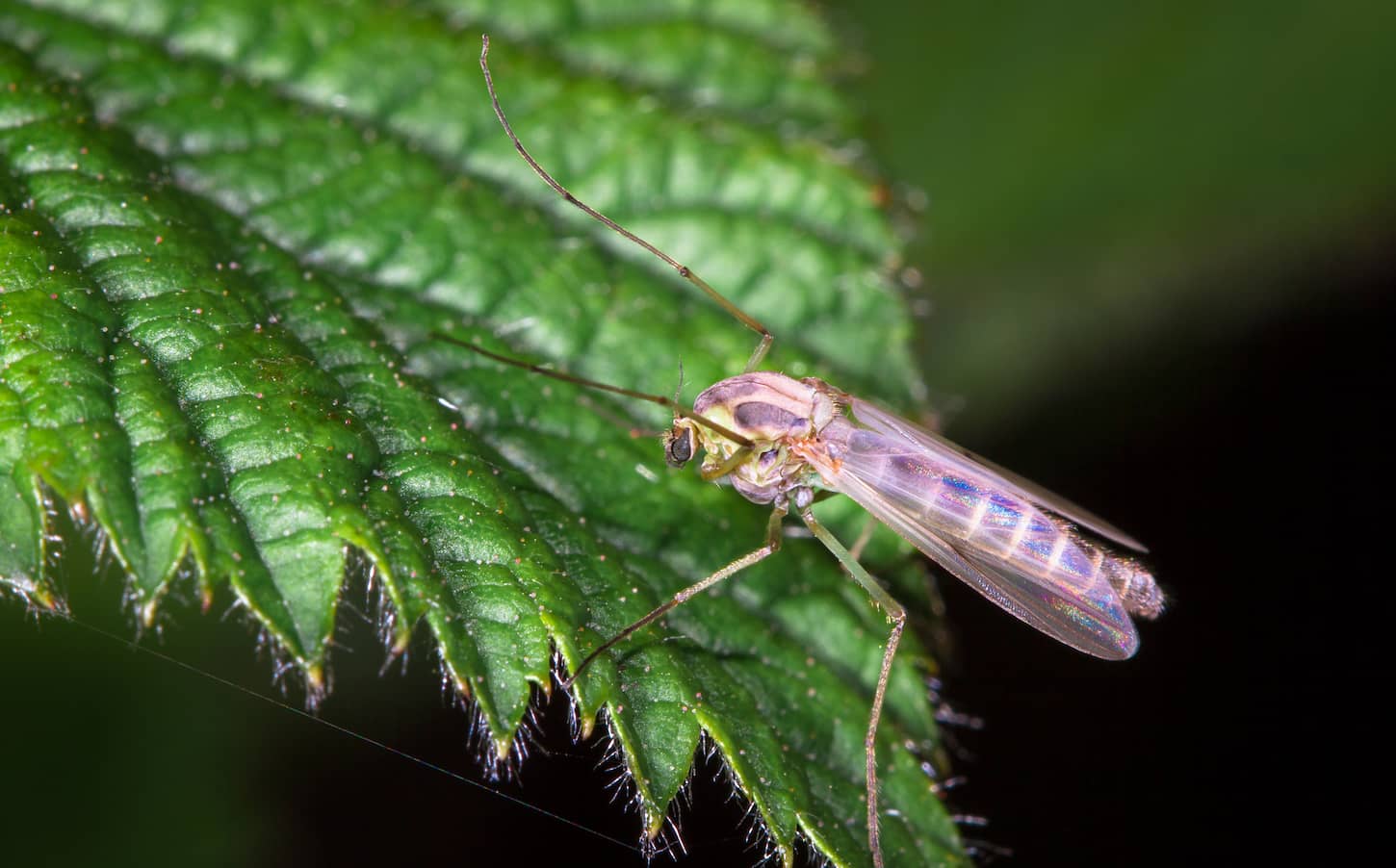
What Trees Attract Mosquitoes?
Mosquitoes are attracted to most trees or bushes that offer shade. That said, mosquitoes do prefer some trees over others. As well as being attracted to coniferous trees such as pine, cedar, and cypress, mosquitoes are also drawn to Oak, Cottonwood, and fruit trees.
Just like many other insects, mosquitoes feed on nectar. Therefore, trees with lots of flowers such as Cottonwood will attract many insects, including mosquitoes. Fruit trees also produce nectar to entice insects. So, fruit trees such as pear and apple will also attract mosquitoes.
Deciduous trees such as oak, maple, and beech, lose their leaves once a year, so often they have a good layer of mulch around their base. Potentially, black ash and green ash will attract mosquitoes too.
If you have any of these trees in your garden, prune them regularly and remove fallen leaves to make them less appealing to mosquitoes.
Want to know if it’s okay to prune your fruit trees right now? Read my article: Can You Prune Fruit Trees in Summer or in the Fall?
Do Mosquitoes Nest in Trees?
Mosquitoes don’t physically build nests like other insects. Instead, they gather en-masse in breeding places. Once they find an area with the ideal breeding conditions, they stay in the area and signal other mosquitoes to join them.
Mosquitoes don’t like the heat and the sun. During the day, mosquitoes retreat to shady places, such as long grass, trees, and mulch. If you see mosquitoes swarming from a tree, they’re probably living in the ground around the tree rather than the tree itself.
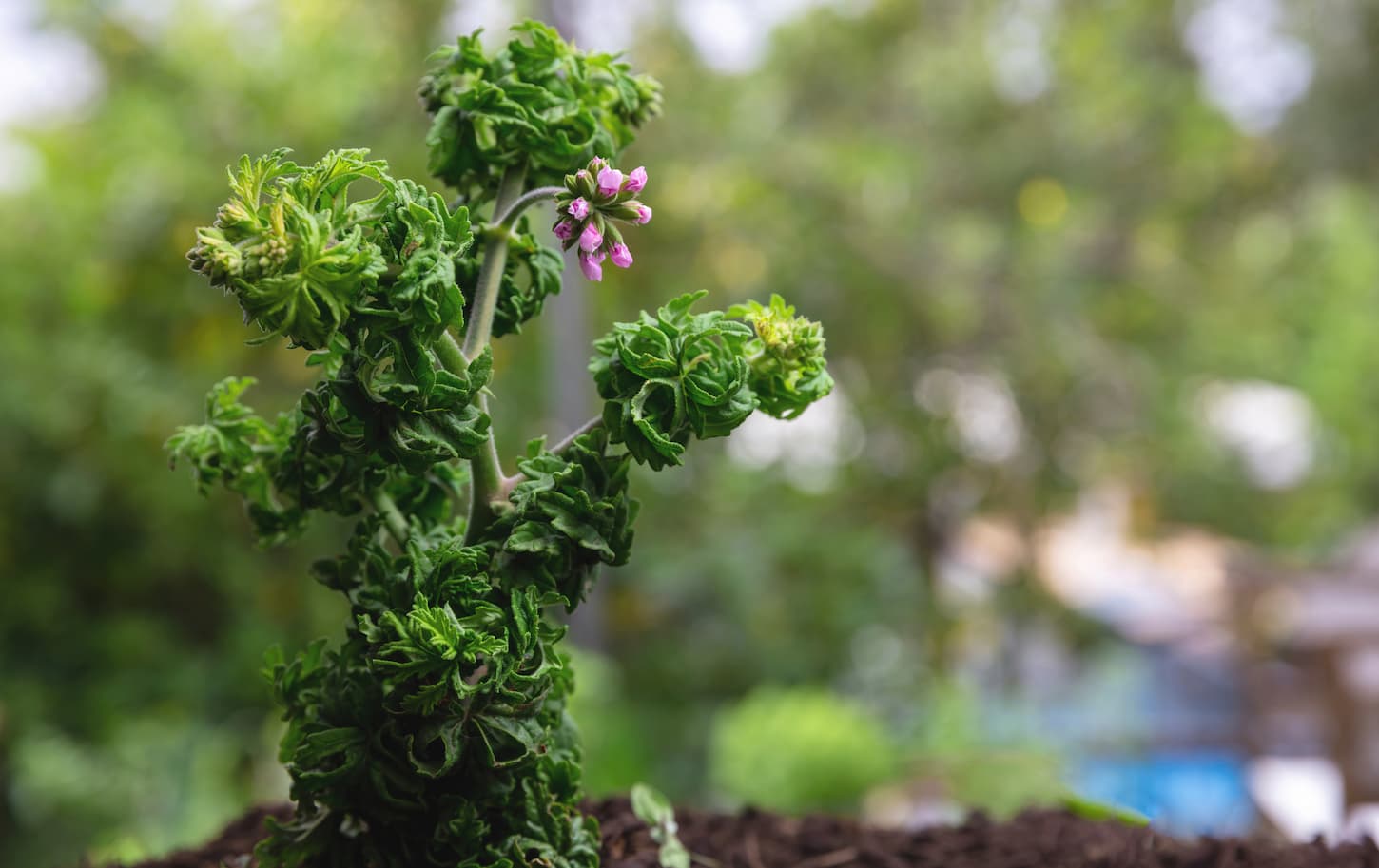
How to Repel Mosquitoes Naturally – 6 Tips
If you suffer from mosquitoes, as tempting as it may be, don’t use pesticides to get rid of them. Pesticides kill beneficial insects too. Instead, use natural methods to deter mosquitoes, such as removing stagnant water from your garden and planting mosquito-repelling plants.
Mosquitoes are attracted to certain environmental factors. Thus, if you remove these, the mosquitoes won’t find your garden appealing anymore, even if you have pine trees.
Look at our six tips below on how to get rid of mosquitoes naturally.
Tip #1: Get Rid of Stagnant Water
Mosquitoes lay their eggs in or around stagnant water, and even small amounts of water can quickly become a breeding ground. Therefore, the most effective way to get rid of mosquitoes from your garden is to remove all stagnant water.
Mosquitoes lay eggs in large amounts of water, such as ponds, boggy ground, and muddy puddles. They will also lay them in small amounts of water such as buckets, birdbaths, pet bowls, and wet tire tracks. So make sure you don’t let water accumulate anywhere, keep empty buckets upturned and put pet water indoors.
If necessary, fill tire tracks and muddy puddles with stones or earth to dry them out. Also, make sure all of your drains are well maintained because stagnant water in blocked drains can also become a mosquito breeding nest.
A stagnant pond can harbor hundreds and thousands of mosquito larvae. If you have a pond in your garden, introduce fish, turtles, or frogs into it, they will eat the mosquitoes and larvae. Or add a pump, filter, or fountain to stagnant water features to keep the water fresh and moving.
Tip #2: Keep The Air Flowing
On a windy day, you might have noticed there aren’t many mosquitoes around. Mosquitoes are very delicate, so they don’t do well in a breeze.
To naturally keep mosquitoes out of your garden, don’t have too many windbreakers, encourage the wind to flow around. And install a ceiling fan to keep them off your porch.
Tip #3: Keep Your Garden Clean
Mosquitoes love shady places, so regularly prune back foliage, bushes, and trees to minimize shaded areas. Keep your grass well-trimmed too. Long grass stays moist and will attract lots of mosquitoes.
Always clean up leaves and trimmings because organic matter on the floor can become a mosquito breeding ground. Mosquitoes love to breed in mulch. However, mosquitoes don’t like the smell of cedar mulch. Like pine, cedar contains a mosquito repellent oil that seeps out of the mulch.
And finally, if you have any old tree stumps in your garden, remove these. Mosquitoes love to hang out in damp, hollow tree stumps.
Tip #4: Burn Candles and Oils
Mosquitoes have a sensitive sense of smell, so they don’t like smoke or strong aromas. This is why you rarely find mosquitoes around a campfire. When you’re outside in the evening, burn some citronella candles or light some paraffin torches to keep mosquitoes at bay.
Additionally, burn essential oils on an oil burner or diffuser to deter mosquitoes. The most effective mosquito repellent essential oils are citronella, lavender, pine, mint, rosemary, and geranium.
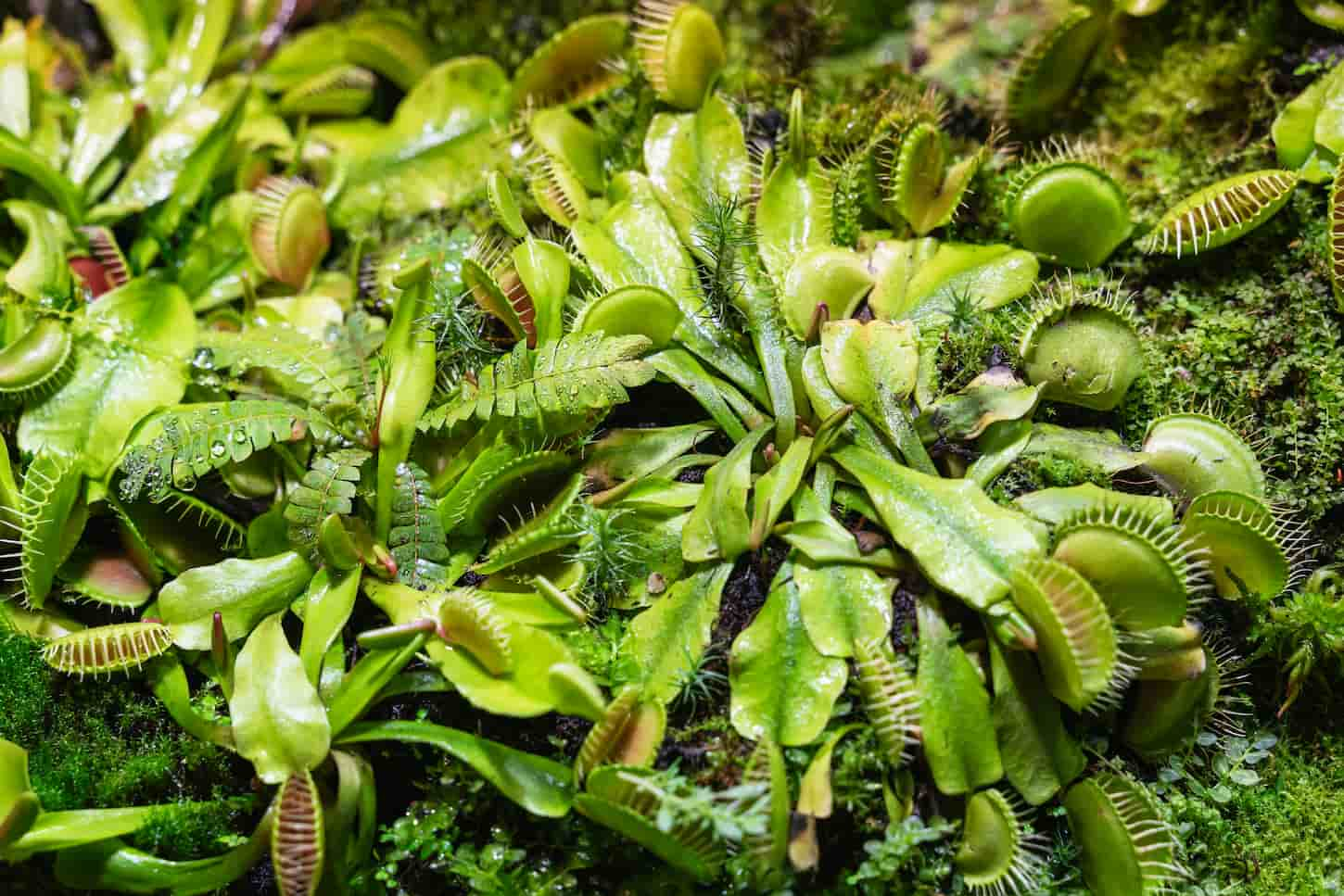
Tip #5: Use Mosquito Traps and Encourage Natural Predators
Mosquitoes have lots of natural predators. One way to reduce their numbers naturally is by encouraging these predators into your garden.
Bats love mosquitoes, as do birds such as purple martins and swallows. So put some bat and bird boxes up in your garden to encourage them to set up home there.
IMPORTANT NOTE: stay away from bats. Bats are known and natural carriers of the rabies virus. Do not touch or pick up bats. If you or someone you know does interact with a bat, please seek medical treatment immediately. Rabies is always lethal to humans, though it can be survived with a vaccine treatment after exposure.
If putting up a bat house and the risk involved there is not something you want to deal with, I get it. I worked in an emergency room as a nurse for years, and I personally administered rabies vaccines to people who dealt with bats. It’s not a fun vaccine, but it is better than dying from rabies.
In any case, I don’t have a bat house up in our backyard homestead. Instead, we have chickens and birdhouses. Our chickens have been known to chase, catch, and eat mosquitoes. It’s kind of awesome.
Before you sweep away your cobwebs, remember, spiders eat mosquitoes too. If you can bear it, encourage spiders into your garden so they can help keep the mosquito numbers down.
Mosquitoes are attracted to carbon dioxide, so install a chemical-free co2 trap in your garden. The co2 trap emits Carbon dioxide to attract the mosquitoes, then sucks them in with a vacuum.
Tip #6: Plant Mosquito Repellent Plants
Mosquitoes have a sensitive sense of smell, and they don’t like fragrant plants such as lavender. Additionally, some plants, such as mint, can kill mosquito larvae, so they generally stay away from these.
If you have pine trees or lots of flowers in your garden, plant a few insect repellent plants among them to keep mosquitoes at bay. You can also plant them around your house to keep the mosquitoes out of there too.
Here are 10 of the best mosquito repellent plants to grow in your garden.
- Lavender – Mosquitoes don’t like the smell of lavender, and it may have a calming effect on them.
- Mint – Contains a chemical that is just as effective as DEET as a mosquito repellent.
- Rosemary – Mosquitoes hate the smell of rosemary.
- Basil – Contains chemicals that are toxic to mosquito larvae.
- Catnip – Cats love it – mosquitoes hate it!
- Citronella – Is one of the most potent natural insect repellents.
- Floss Flower – Contains chemicals used in commercial insect repellents.
- Lemon Balm – Attracts beneficial insects such as pollinators but repels mosquitoes.
- Marigold – Contains pyrethrum, which is a powerful insecticide.
- Geranium – Geranium is closely related to citronella.
It’s worth noting, that some plants encourage mosquitoes, particularly water pooling ones, such as water lettuce, papyrus, taro, and water lilies.
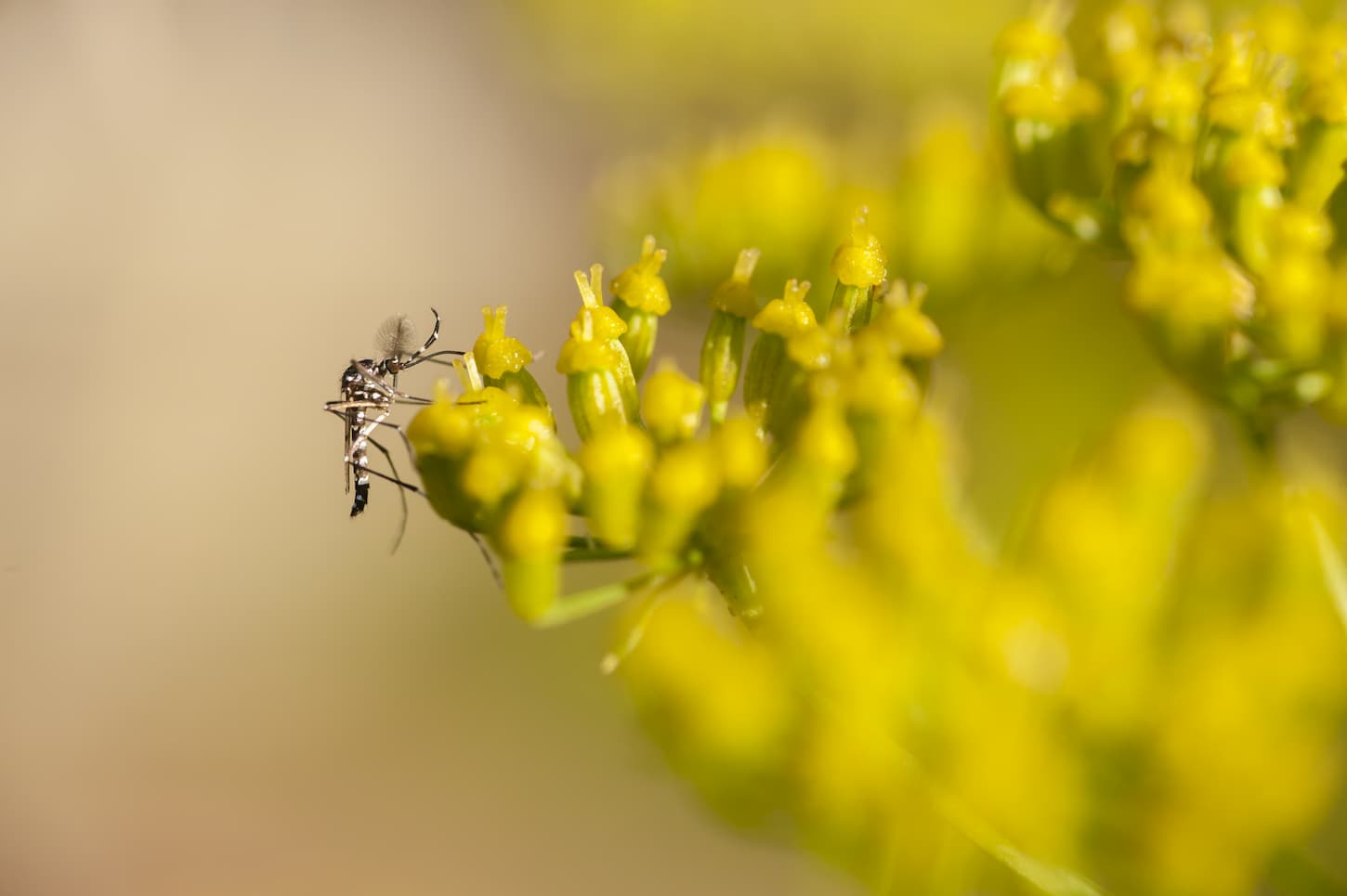
Interesting Mosquito Facts
Scientists believe mosquitoes have been around since the dinosaurs roamed the earth 400 million years ago. These tiny creatures aren’t just annoying, they’re the deadliest animal in the world. Estimates suggest they kill over 750,000 people each year.
Want to know more about the world’s most deadly animal? Then look at our interesting mosquito facts below.
- Mosquitoes are the most deadly non-human animal because they carry many diseases such as yellow fever, malaria, dengue, lymphatic filariasis, and West Nile virus.
- Mosquito bed nets have been used since ancient times. Apparently, Queen Cleopatra of Egypt used one on her royal bed. Mosquito bed nets have saved countless lives over the centuries.
- A female mosquito can lay up to 300 eggs at a time in tiny amounts of water. Mosquito larvae are the little wriggling things you often find in water during the summer. It takes ten days for the larvae to leave the water as a mosquito.
- Mosquitoes are attracted to the carbon monoxide from our breath. Mosquitoes are also attracted to sweat and are more attracted to dark colors.
- Only pregnant females drink blood because they need protein for their eggs. However, they don’t have teeth. Instead, they inject saliva through a serrated tube into your skin. The saliva contains a painkiller and anticoagulant, and this is why you don’t feel them bite.
- Mosquitoes can drink up to three times their weight in blood, and they prefer to drink from animals over humans.
- That annoying buzzing sound comes from the mosquitoes’ wings. Their wings beat around 300 to 600 times per second. Even though their wings beat fast, mosquitoes move very slowly, approximately 1 to 1.5 mph.
Pro tip: make sure your garden and backyard homestead does not have any standing water left out to attract mosquitoes or for them to lay eggs.
This is why I like to use covered waterers for our animals, even if I do have to train the animals on how to use them.
The animals figure it out pretty quickly, thankfully. That way, everyone has water – except the mosquitoes.

Best Products for Managing Mosquitos (with or without Pine Trees)
Want to better control mosquitoes in your backyard homestead? Here are some products that will help you do just that.
If you need something quick and portable to keep you and your family free from mosquito bites, we’ve been using these bug bracelets (found here on Amazon) and they really work. We tested it out while miniature golfing on a muggy night on a golf course full of mosquitoes. They’re easy to wear, reusable, and they can go on arms or legs to keep people mosquito-free.
After several other tests, I’ve been mosquito-bite-free with those bug bands. My kids have been, too, as long as they wear the bands. It’s only after they take them off that the mosquitoes want to bite them!
They’re especially nice because they are super budget-friendly. We keep a few spares on hand to give out to friends and family who aren’t as mosquito-repellent-prepared.
Best scents to deter mosquitoes (without driving the people crazy):
- Citronella is the gold standard for mosquito repellent. If you want to control the levels of citronella yourself, though, you’re going to need to get some citronella oil (this one is a good price on Amazon).
- Pine needle works great to repel mosquitoes. But if you don’t have pine trees, you can use pine needle oil (like this one on Amazon) to get the same effect.
Best essential oil delivery options to keep mosquitoes away:
- The great thing about using an essential oil burner or wax warmer is that they come in so many shapes, sizes, and varieties. Here’s a basic ceramic one on Amazon that doesn’t look too crazy, so it should fit in most any backyard homestead without drawing any attention to itself (while still keeping mosquitoes away).
- If you’d rather have a wood grain variety diffuser, then this one on Amazon is a solid choice.
Want traps to set out and control mosquitoes without much thought? Here are some great options for you.
- This mosquito trap uses a CO2 emitter to keep the mosquitoes contained in one area. This CO2 emitter trap on Amazon isn’t cheap, but it is a solid investment that works. Our friends have one like it they keep by their deck to keep the pool area mosquito-free.
- If you need something a little more budget-friendly, then try a mosquito zapper like this one (on Amazon). Some of our family members have one like this that works well, especially when paired with a citronella diffuser.
Okay, so getting a ceiling fan for a covered patio isn’t a trap, but it can still help improve airflow to better control mosquitoes. This 52-inch outdoor fan with lights on Amazon also has a remote control, and it’s a classically simple design that looks great. It should fit in almost any backyard.
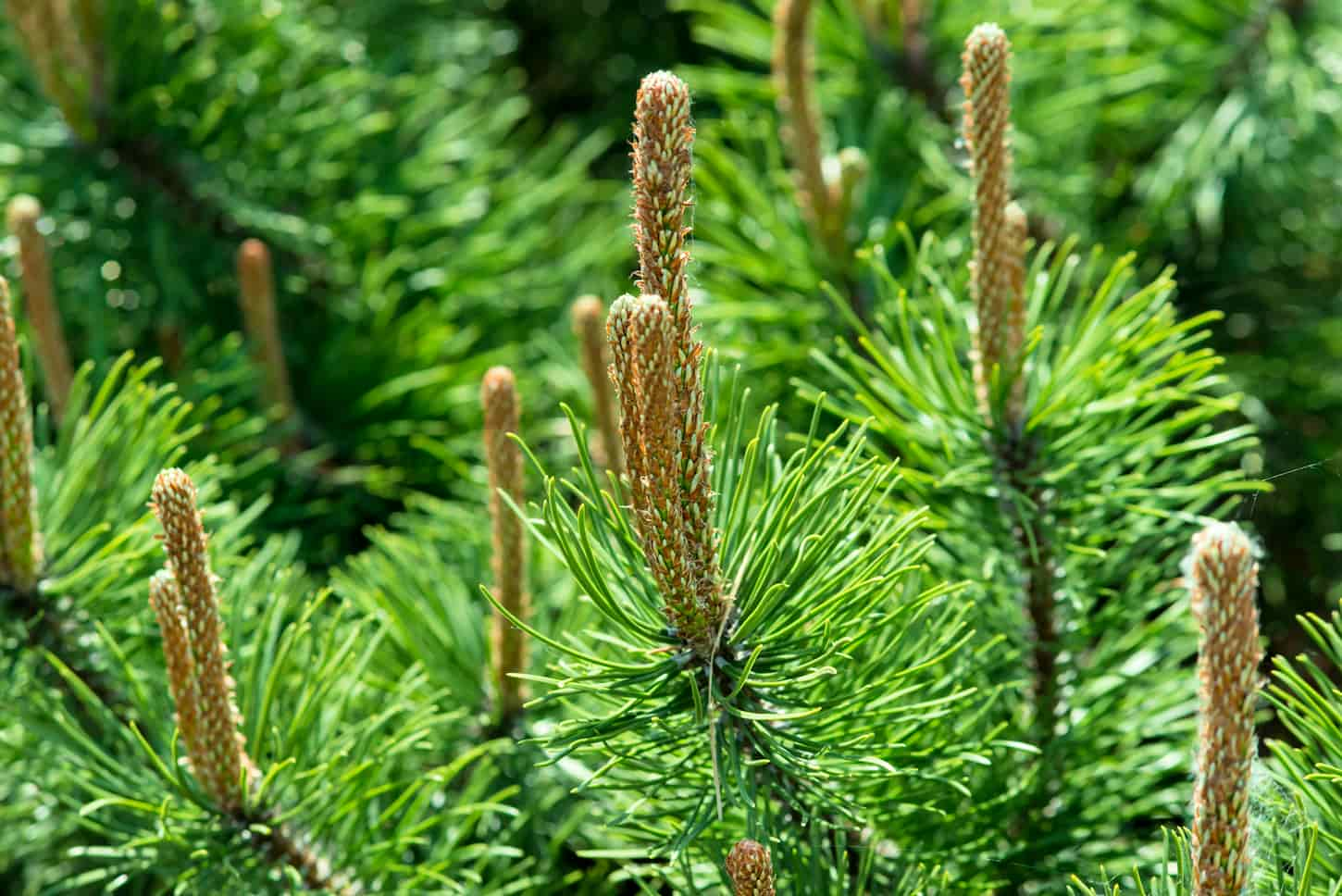
Next Steps
Pine trees are a pleasure to have in your garden, but the shade and dampness they create will attract mosquitoes.
However, with a bit of regular maintenance, you can make your pine trees less appealing to mosquitoes. Prune pine trees regularly and collect fallen needles off the floor.
If you don’t want to put in the effort to maintain pine trees, opt for dwarf pine trees instead. Dwarf pine trees are smaller and easier to maintain. Thus, they generally attract fewer mosquitoes.
Next, make sure that your chickens aren’t accidentally attracting mosquitoes (even if they do eat them!) with their nasty, green standing water that’s always left out. Go read my article: How To Keep Chickens’ Water From Turning Green and uplevel your chickens’ watering system next.
Resources
Learning from your own experience is essential, but learning from others is also intelligent. These are the sources used in this article and our research to be more informed as homesteaders.
- Abagli, A. Z. “Essential Oil from Bush Mint, Hyptis Suaveolens, Is as Effective as DEET for Personal Protection against Mosquito Bites.” The Open Entomology Journal, vol. 5, no. 1, 2011, pp. 45–48. Crossref, doi:10.2174/1874407901105010045.
- Ansari MA, Mittal PK, Razdan RK, Sreehari U. Larvicidal and mosquito repellent activities of Pine (Pinus longifolia, family: Pinaceae) oil. J Vector Borne Dis. 2005 Sep;42(3):95-9. PMID: 16294807.
- “Fighting the World’s Deadliest Animal.” Centers for Disease Prevention and Control, 2020, www.cdc.gov/globalhealth/stories/world-deadliest-animal.html.
- Obenauer, P. J., et al. “Infusion-Baited Ovitraps to Survey Ovipositional Height Preferences of Container-Inhabiting Mosquitoes in Two Florida Habitats.” Journal of Medical Entomology, vol. 46, no. 6, 2009, pp. 1507–13. Crossref, doi:10.1603/033.046.0639.
- “Where Mosquitoes Live | CDC.” Centers for Disease Control and Prevention, 6 Mar. 2020, www.cdc.gov/mosquitoes/about/where-mosquitoes-live.html.
- Zeng, Wei-Cai, et al. “Chemical Composition, Antioxidant, and Antimicrobial Activities of Essential Oil from Pine Needle (Cedrus Deodara).” Journal of Food Science, vol. 77, no. 7, 2012, pp. C824–29. Crossref, doi:10.1111/j.1750-3841.2012.02767.x.
- “What Eats Mosquitoes.” Orkin, 28 July 2021, www.orkin.com/pests/mosquitoes/what-eats-mosquitoes.
